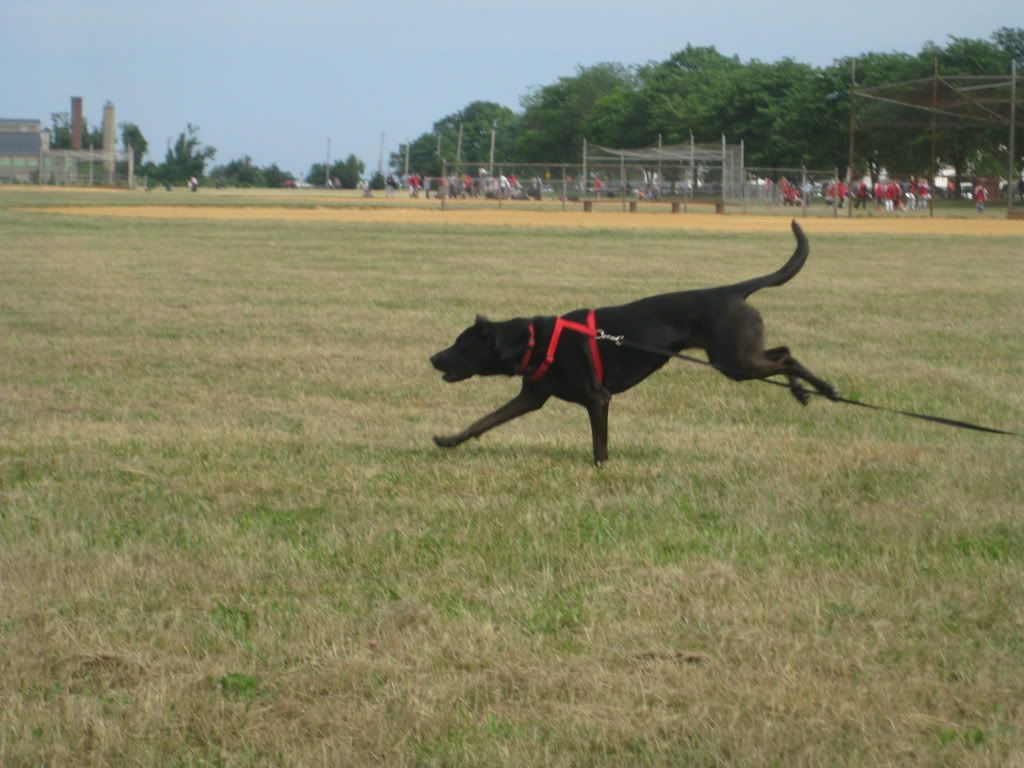Yes, You Can Actually Use This Stuff
One of my jobs as Teacher Assistant in the summer section of the Experimental Psychology: Learning and Behavior course is to go over principles of learning and behavior that the students just don't "get" on the first try. Another is to serve as a liaison between the students and the professor, a sort of peer-mentor type figure who can explain things, talk to students one-on-one in a down-to-earth way.. oh, and turn on the computers and chambers and fetch the pigeons when they're ready to be used, of course.
I'm only removed from the class by less than a year myself. However, I had a distinct advantage in learning the material because of my experiences using it before I set foot in the classroom. For a lot of these kids, the order is reversed. In their minds, classical conditioning is, at best, the image of a dog salivating in an old Russian lab, and operant conditioning is, at best, a food-deprived mouse in a little box pressing a lever to get some grub, as a white-haired spectacled man looks on.
Most times, the students in the class take the class to simply get through it, with no intention of learning anything that they'll ever use. Classical conditioning and shaping procedures and negative punishment may sound cool in the confines of the pigeon lab, but will any of them ever use it elsewhere? I'd like to think - and maybe I'm being too idealistic - that some of them really mean it and really take an interest in it.
It happened for me. I took an interest in behaviorism and it blossomed for so many different reasons. Why can't that happen for someone else?
For the sake of all the dogs out there who live with owners who don't know how to to deal with fear or aggression or overexcitement, for all of the dogs out there who are given corrections that are unnecessarily painful, harsh, or outright ineffective, for all of the dogs out there who are described as "alpha" or "nasty" or "too damn scared of everything"... I can only hope that some of what I say sticks. Because while the class is not at all about dog training, the principles that are taught would improve the lives of a lot of dogs out there in this world where we like to talk about how dogs are dominant, cunning and crude little creatures who live only to leech off of us, without looking at all into why they do what they do.
The class has such great practical applicability, even if only because it urges you to consider the impact your own behavior might have on others, let alone the impact that environmental consequences have on your own behavior and emotions, as well as the behavior and emotions of others.
You don't have to aspire to be a clinical psychologist or a dolphin trainer to appreciate, use, recognize conditioning in a productive way, in its simplest forms.
If just a few of the people see that, then I will have been successful.



5 comments:
You cannot see it from there, but Lilly and I are pumping our fists in victory. Exactly. You can help bridge the gap between class and life ... and honestly, MUCH of learning theory also helps people better understand themselves and their interactions (at home, at work) with other people.
It's wonderful that someone with your enthusiasm is teaching the class. Your attitude will help the students to see how the material actually applies to their everyday lives.
Very cool!
From her first school year and all the rest to follow, my head strong daughter would always ask. "Why do I need to do it, what use is it, when will I need the information" those teachers that could tell her from personal knowledge of what they were teaching are the ones that made her the great person she is, those that couldn't are the ones that could of left her in a gutter. You will be successful.
Great post. I hope the students in class learn what the class is trying to teach them.
excellent points :)
Post a Comment